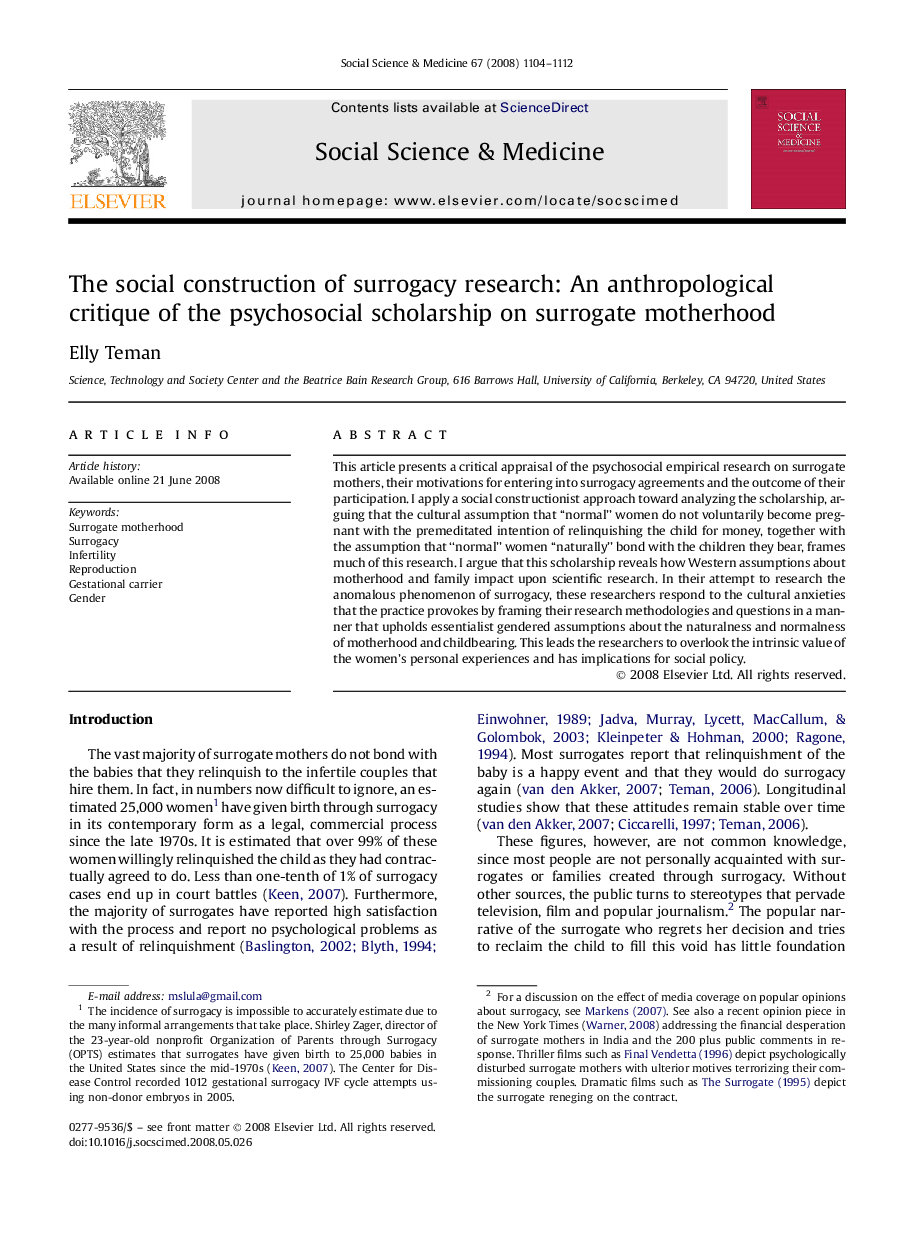| Article ID | Journal | Published Year | Pages | File Type |
|---|---|---|---|---|
| 954153 | Social Science & Medicine | 2008 | 9 Pages |
This article presents a critical appraisal of the psychosocial empirical research on surrogate mothers, their motivations for entering into surrogacy agreements and the outcome of their participation. I apply a social constructionist approach toward analyzing the scholarship, arguing that the cultural assumption that “normal” women do not voluntarily become pregnant with the premeditated intention of relinquishing the child for money, together with the assumption that “normal” women “naturally” bond with the children they bear, frames much of this research. I argue that this scholarship reveals how Western assumptions about motherhood and family impact upon scientific research. In their attempt to research the anomalous phenomenon of surrogacy, these researchers respond to the cultural anxieties that the practice provokes by framing their research methodologies and questions in a manner that upholds essentialist gendered assumptions about the naturalness and normalness of motherhood and childbearing. This leads the researchers to overlook the intrinsic value of the women's personal experiences and has implications for social policy.
